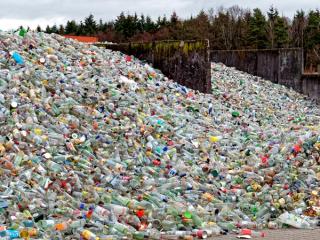
Waste audit and recycling strategy for train operator
- Client Name
- Confidential
- Location
- Europe

SLR’s work has ensured that the client is now better positioned to meet its environmental goals, reduce waste generation, and minimise its overall environmental impact.
Challenge
SLR’s Sustainable Waste Management team was tasked with assessing the feasibility of achieving a 70% recycling rate across the client’s operations to reduce overall environmental impact. The key challenges included:
- Incorrect placement of recyclables in general waste.
- Contamination of recycling bins.
- Inconsistent practices across stations and depots.
- Limited waste composition data.
Restrictions applicable to Department for Transport requirements and management of listed buildings further complicated the installation of new waste and recycling bins, which also had to be taken into consideration.
Solution
SLR was chosen for its expertise in sustainable waste management solutions. The project began with a high-level waste composition analysis, revealing significant recyclable materials in general waste. Site visits and staff interviews identified gaps in engagement and practices. Benchmarking against other train operators showcased best practices, such as dedicated recycling bins that boosted recycling by 26% at one site. SLR’s final report included:
- An audit of the client’s waste contractor’s methodology for calculating recycling rates.
- Suggestions for standardised recycling practices.
- Improved signage recommendations.
- A prioritisation matrix to deliver quick wins and long-term goals.
Impact
SLR’s comprehensive audit showed that 45% of general waste could be recycled, offering a clear opportunity for waste diversion. Our report provided the client with a series of targeted interventions, designed to contribute to the achievement of its 70% recycling target, including:
- Introducing recycling bins at larger stations.
- Enhanced color-coding and signage.
- Targeted employee training on waste management responsibilities.
- Raising public awareness.
Our recommendations, presented as a series of ‘action cards’, enabled the client to prioritise implementation of those measures which most closely aligned with its strategic goals, helping to sustain improvements to waste management practices over time.

